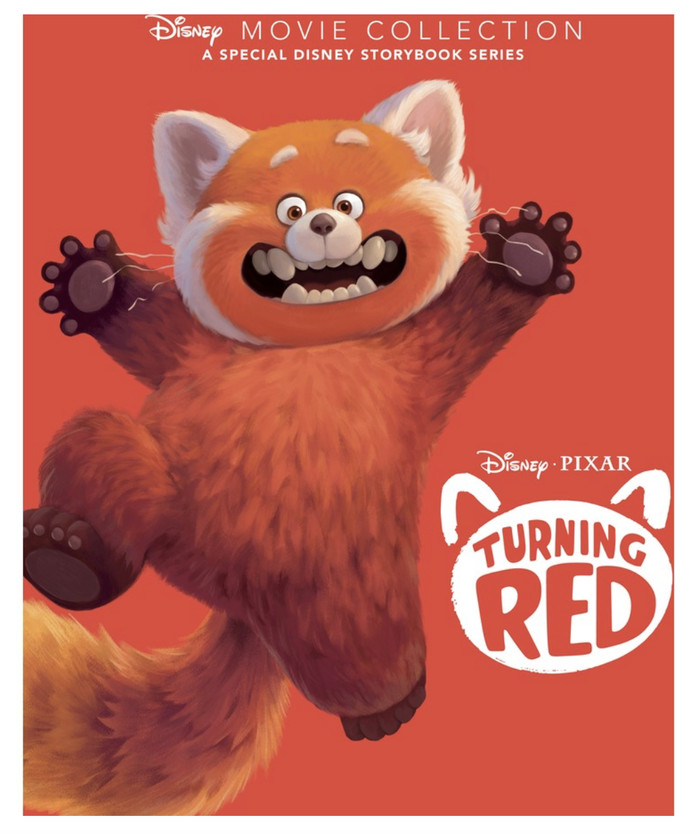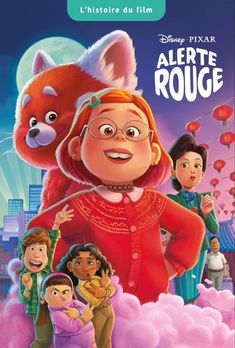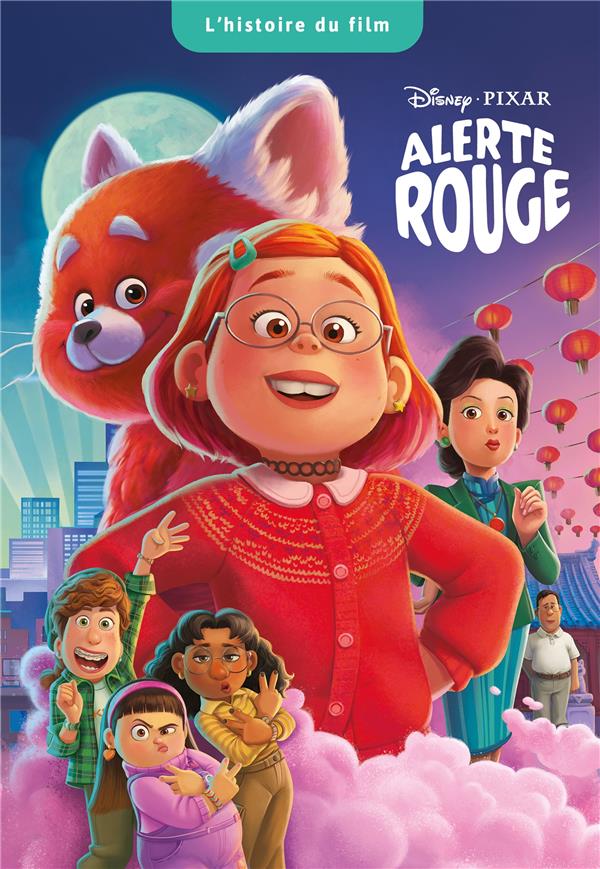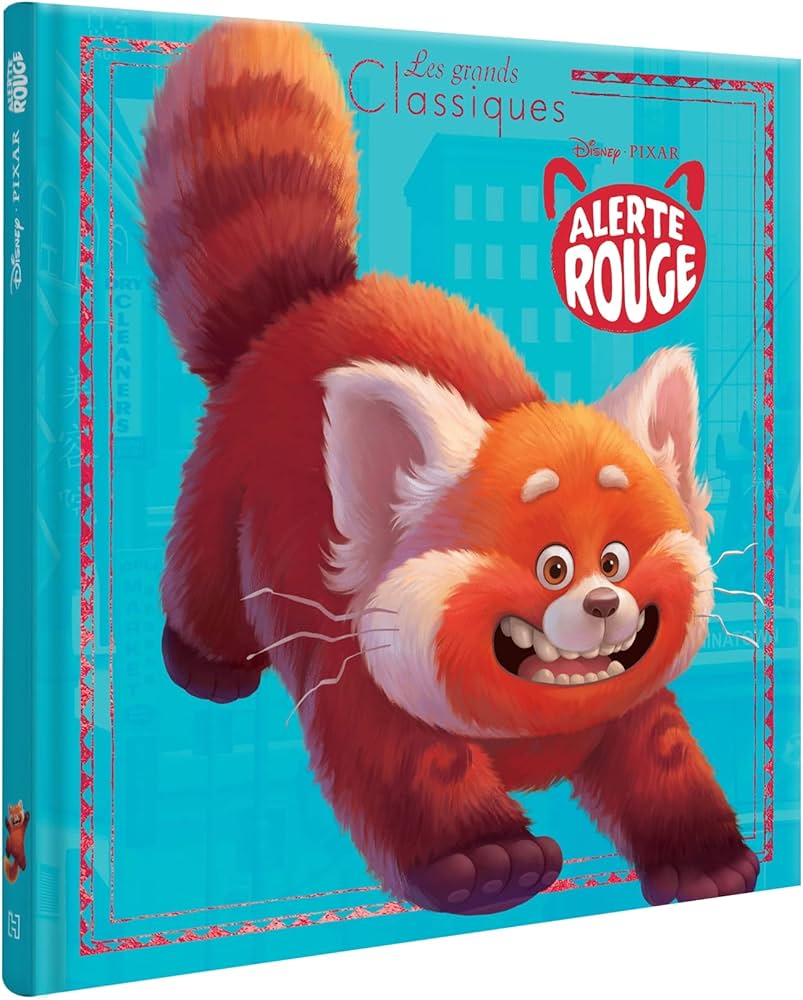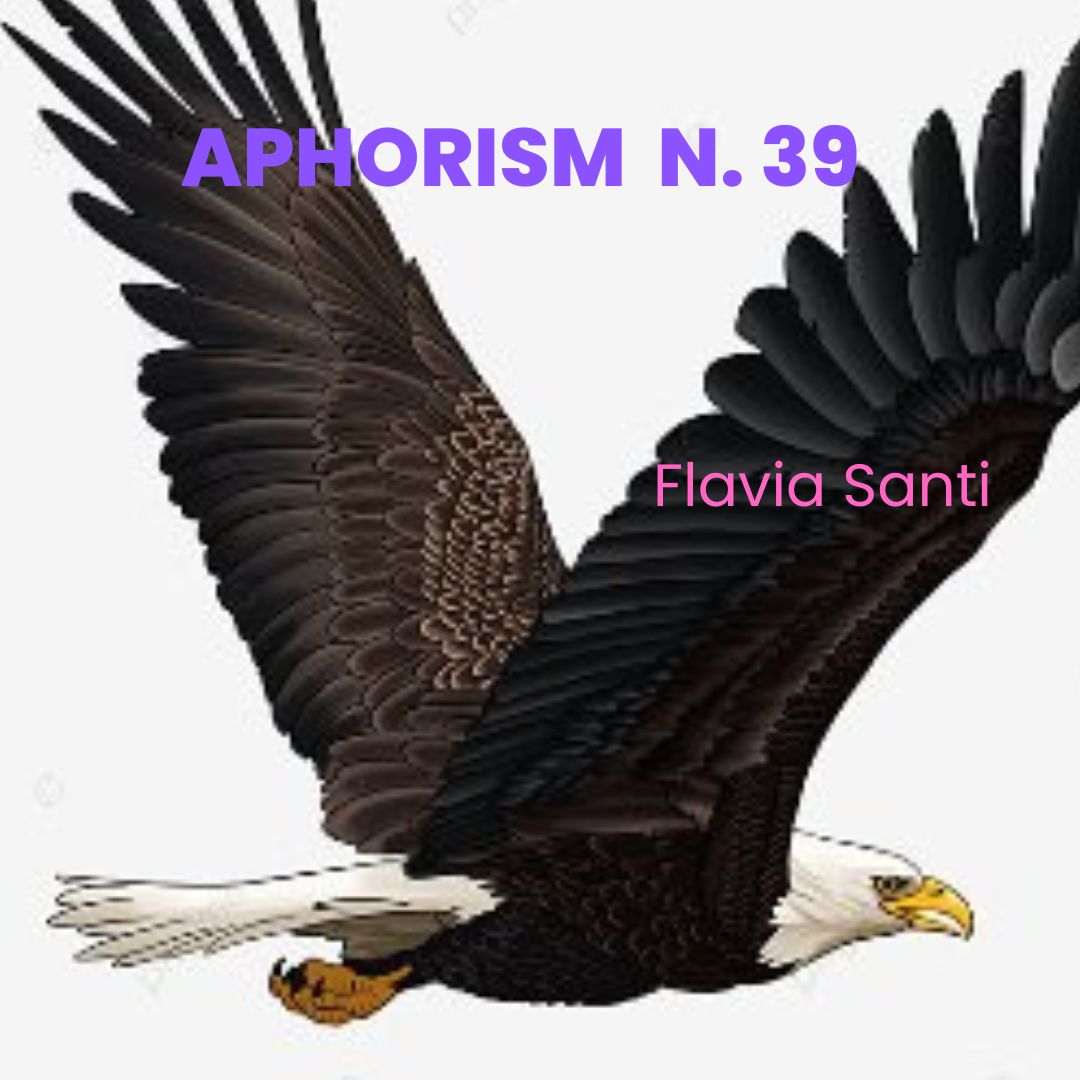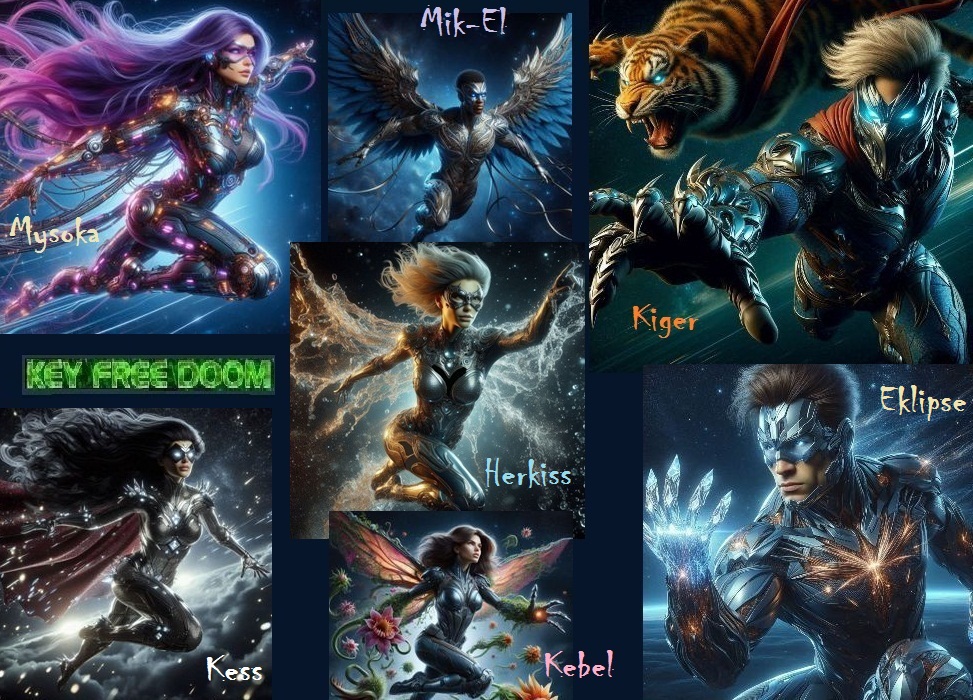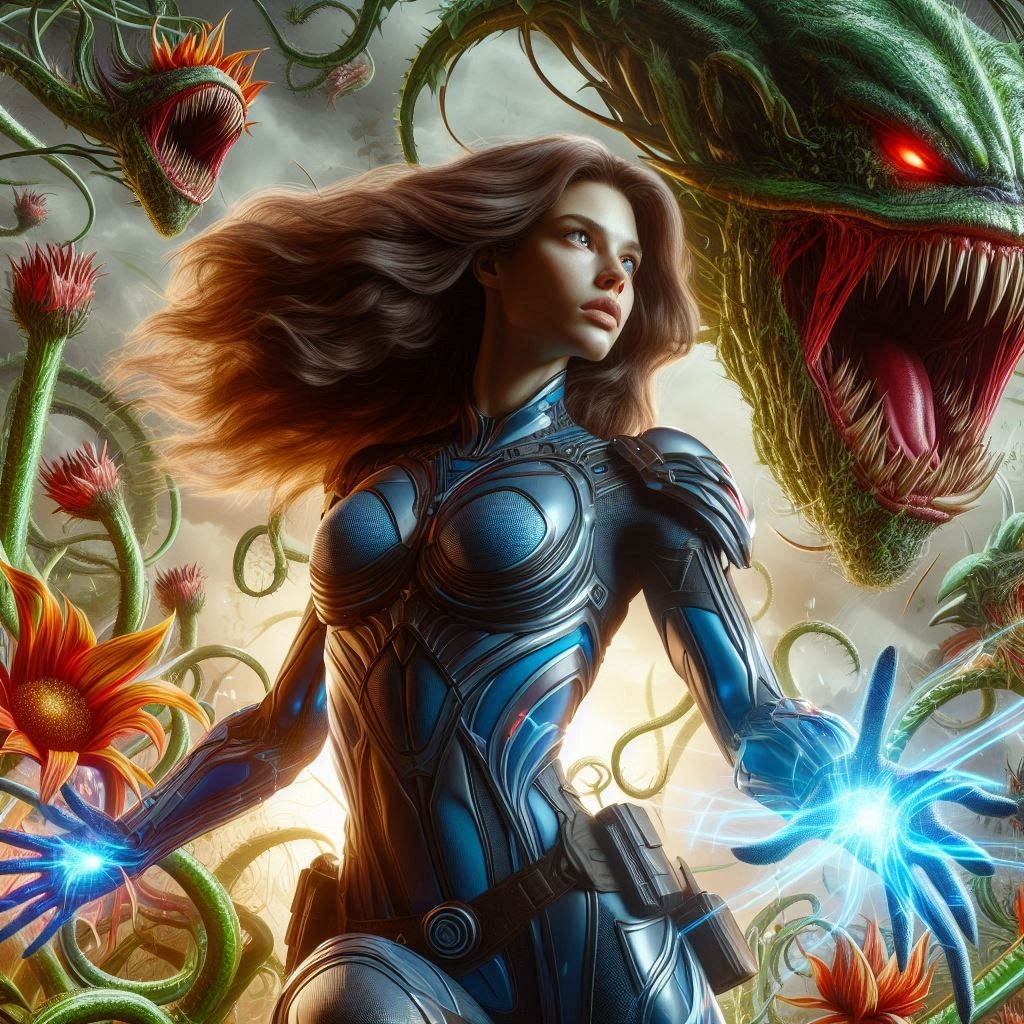Turning Red.
Psychology Version.
Meilin Lee is a thirteen year old girl,
living in Toronto. Meilin says that every request of the parents must be
granted; but she adds that if we overdo it, we forget to honor ourselves: It’s wonderful to follow the teachings of family
members who love us; but it must be remembered that one's identity must not be
annihilated and disheartened; educating means proposing situations and events,
which help us to follow the various dynamics
of life correctly. It’s necessary to respect others, to be polite, not to
offend, not to judge but to advise… all true; but we must not become doormats
who are crushed by the negative attitudes of those who don’t respect us.
Meilin's friends think she is plagiarized by her
family. Meilin and her family are ancestors of the red panda. The red panda brings luck and prosperity to their
family: Sometimes we get entangled in educational aspects that are too coercive
or too permissive. Loving one's children also means raising behavioral and
mental barriers, which must not be overcome. For example, when a boy throws a
tantrum because he wants a certain toy, we need to know how to say NO. If we
don’t put fences and limits to the incessant demands of our children, we risk
making them become spoiled, selfish people who as adults demand everything from
others, without giving anything in return; in short, people who ask and claim
rights, but who at the same time don’t have duties… these descendants risk
becoming arrogant, treacherous and indifferent individuals… regarding the sufferings of their neighbors.
Furthermore, it may happen that these spoiled children, when they see their
parents aging, instead of helping them, intern them in hospitals without giving
them affection and tenderness.
Meilin's mother
says her friend Miriam is strange.
Her mother discovers in her daughter's notebook, some drawings involving the
cashier Devon. Meilin is in love
with him. Meilin's mother goes to Devon and accuses him of plagiarizing her
daughter: Sometimes we wonder why we become people with prejudices and
preconceptions. One of the answers can be found in the incorrect behavior of
our educators. In fact, some members of our family begin to criticize and judge our friends,
schoolmates and teachers. In this way we learn at an unconscious level, attitudes and thoughts full of criticism and
hatred towards those who don’t follow certain ways of acting… that we believe
to be right. In practice, we risk becoming too severe judges.
In addition to the
rest, let us remember that what we think, say and do… can be projected onto other people. For
example, if a parent has the habit of wanting to plagiarize the descendant... he will unknowingly think that even
the friends and acquaintances of his child are manipulators. In short, we project
what we are… onto others (Miriam).
Meilin Lee the next day filled with anger... turns into a red panda, and realizes that when she
is calm… she returns to normal: When anger and rage seize the mind of a person, the rational and logical apparatus
is partly replaced by the feeling of anger that comes from not having been
respected or listened to. Ultimately, the words from sweet and serene... become
filled with insensitive and
sometimes unfair phrases. It’s also interesting to add that often the annoyance
of the present… joins the anger of
the past which is repressed and
stored in the unconscious. This explains the reason why sometimes some
individuals, due to a banal accident, get disproportionately
angry.
Meilin discovers that her mother is secretly following
her to school, saying that she has forgotten her sanitary pads. Meilin
transforms into a red panda, and is
discovered by her mother: Too obsessive and oppressive family members… can
develop feelings of irritation and resentment
in their children. Not surprisingly, some people who in the past have had too
intrusive family members… develop hatred towards people who have a leadership
role; such as policemen, politicians, priests, and teachers. In reality, the
feeling of discomfort and anger
experienced in childhood is displaced to the present... towards figures that
evoke the sufferings and humiliations suffered in the past.
The mother explains to her daughter that
many years ago the ancestor Sun Yee,
had a mystical connection with the red
panda; and she asked the gods to take the form of the panda. Ancestor Sun
Yee during a terrible war... she had
to protect herself and her daughters. Finally, the gods gave the ancestor Sun
Yee the ability to become a huge red panda, managing to defeat the enemies: The
ancestor Sun Yee portrays the person who had balanced, loving and sensible parents
in childhood, and precisely for this reason was able to identify with the parents in an optimal
way. In this way, the child with loving parents is able to build an identity and a "True
Self" (red panda) strong enough to overcome the "wars" of life. In short, if we
manage to develop a healthy and balanced identity,
we get to build a psychic armor (red
panda) capable of overcoming the difficulties of life in an optimal way.
The gift of becoming
a red panda passes on to the next
generation. Over time, what seemed like a blessing… was a discomfort. However, there is a cure, and at the next red moon,
Meilin will have to face a magical
ritual, which will confine the spirit of the red panda in a pendant: It must also be said that
there are educators and family members, who believe that educating means imposing their own ideologies,
behaviors and ideas to descendants in a coercive manner. Basically, one's real
identity is visualized by some educators as a monster (red panda) to
be eradicated, and replaced with a personality that is absolutely compliant
with the wishes of family members (pendant).
In this way children feel compelled to build a "False Self" or fictitious personality. The result is that the
true identity of the children… is hidden and contained in the depths of the unconscious.
The friends discover that Meilin becomes a red panda, and they accept her anyway.
Meilin Lee demonstrates to her parents that when she feels strong emotions, she
thinks about the people she loves
most in the world. Her mother believes that her daughter is thinking of her,
but on the contrary... Meilin can keep her calm
only when she thinks of her friends:
Some educators are surprised that their children have too much faith in her
friends. And they don’t contemplate that if we continue not to welcome our
children for what they are, and that they also criticize, offend or judge
themselves too severely just for the reason that they have apparently
unsuitable ideas and opinions... It’s natural that the descendants turn to
friends and acquaintances to find someone who knows how to listen and accept them for who they really are.
Ultimately, there are young people and adults who in their friendships have
finally found people ready to listen
and understand them; and for this very reason, they begin to feel serene and calm.
Meilin's mother doesn’t want her daughter to go
to the concert of the 4-Town band,
for fear of the strong emotions that can make her become a red panda: One of
the tasks of the parent is to protect the children from the dangers and threats
of life; however, we need to remember that repressing our children's life
experiences more than necessary, can be counterproductive.
In other words, being too protective doesn’t help children to grow and expand
their intrinsic ability to develop
psychic and behavioral defenses. Sometimes just when we fall, we understand the
mistake made and try not to repeat it. It’s no coincidence that if we
think about it, we always meet adults full of anxiety or insecurity; in some cases these individuals were unable to develop
their psychic defenses, since they
had too suffocating family members.
Meilin and her friends have to recover some money to
go to the 4-Town concert. Meilin
decides to exploit her becoming a red
panda, to make money. In fact, his schoolmates are willing to pay to see
the red panda: People who know how to accept themselves for who they really
are… are able to draw on their internal
resources, the strength, creativity and energy necessary to develop their
inspiration and their real personalities.
Meilin's aunts and grandmother arrive at her
house to complete the ritual. The grandmother tells her granddaughter that the
more the beast is let loose, the
stronger she becomes; with the risk of never freeing herself from the beast
again. Meilin understands that she no longer has to turn into a red panda: We need to become balanced
and correct people; ultimately, the balanced individual knows how to direct his
own drives, needs, passion and energy in an equitable and objective manner.
Indeed, sometimes it happens that some strong
emotions such as anger or a sense of injustice (red panda), can overwhelm our mind and take control. It feels like
a boat at the mercy of a tremendous hurricane.
In these cases, it’s necessary to recover an inner calm that counterbalances
the fury that comes from anger. It’s a very delicate event, and which takes time and good will, to be
completed.
Meilin's schoolmate Tyler asks if she can become a red
panda at his party by paying her. Meilin accepts. Meilin's mother finds her
daughter filled with anger, she
takes it out on Tyler: There are individuals who try in every way to use the
internal resources (red panda) of
others, for purely selfish purposes
and unrealistic. It’s therefore normal for an inner rebellion to arise, towards
these people (Tyler). It should be
added that at times one's ego refuses to accept its emotional side with loving
kindness; which is often visualized as something to move away from. In truth,
our internal resources and our "True
Self", if they are not welcomed, risk raising a fictitious personality, which follows rules and norms imposed by
others.
The father consoles Meilin, who declares
that she feels like a monster; the father
says that the goal is not to hide one's negative side, but to find a place for
it and live with it. Furthermore, the father assures that this side of Meilin
is sympathetic. All this, after her
father saw a video of Meilin joking with her friends, when she was a red panda:
Meilin's father portrays a good parent,
who knows how to welcome the true
personality of his children with respect and love. We must not hide our
true personality and personal characteristics. Not surprisingly, accepting our
ways of doing, speaking and thinking, develop a good self-esteem.
All of Meilin's relatives do the ritual to open a portal, and send away the spirit of the
red panda. Meilin meets her ancestor Sun
Yee, and doesn't want to break away from the red panda. Finally, the ritual
fails: It can happen to have too demanding and uncompromising educators, who
don’t know how to welcome our
personality with love (red panda).
In this case it’s necessary to remember that if we don’t accept ourselves, we
risk separating our identity, and we
can become false people who repeat behavioral patterns imposed by others like puppets. In short, if some people see a monster (red panda) in our "True
Self", we must remain true to ourselves and accept ourselves for who we are.
Meilin escapes and goes to the 4-Town concert. Eventually Meilin apologizes to her friends; and
she tells them that giving up on them is worse than breaking away from the
mother: Giving up our internal resources
(friends of Meilin), our “True
Self”… is the worst thing we can do against ourselves. When we realize that for
some time we have given up on being ourselves, we need to recover our real identity (red panda) and live with serenity
alongside our "True Self".
Meilin's mother gets angry, and after breaking
her spell, she becomes a huge red panda. At the 4-Town concert comes the
mother, who is now a huge red panda. Everyone runs away: Sometimes we forget
that even our educators and relatives have had to repress themselves. In this way their inability to accept their children
for who they are, derives from a past
full of mental constraints and
repressions towards their "True Self". And of course, if we suppress
our personal resources and our individuality, we risk increasing aggression
towards others; which become a sort of scapegoat
for the frustrations experienced.
Meilin's father and
relatives say they must save their
mother, and go through the magical ritual again. Meanwhile, Meilin declares to
her mother that she must accept her for who she really is. Meilin says she is not perfect or living up to her
mother's expectations. Finally Meilin states… sorry if I will never be like
you: Sometimes family members try to repress
the true personality of the descendants, since they don’t behave in a similar
way to their own. Parental expectations become dogmas full of severity; in this way, children always feel insecure and not up to par with
expectations. It’s necessary to naturally welcome the wonderful uniqueness of one's children, and grow together with them.
Meilin's mother falls unconscious to the ground;
after which Meilin's grandmother and aunts get rid of their magical amulets,
and become red pandas trying to
raise Meilin's mother: To help those who cannot accept themselves for who they
are, we need to make them understand that being themselves is an event natural
and wonderful, which puts the
rational side in contact with the emotional
one. Our creativity and personality should not be viewed as monsters filled
with horror (red panda), but as extraordinary essences
that allow us to grow in truth and love.
Meilin Lee finds herself immersed in the
enchanted world beyond the portal,
and she finds her young mother crying.
Her mother tells her that she is tired of being perfect to please her
grandmother. Meilin says she knows exactly what she feels, and takes her by the
hand. Finally, Meilin's mother
returns as an adult: When we don’t
accept ourselves for who we are, we make our "True Self" suffer and cry, which remains hidden and locked up
in the unconscious... waiting to be
able to express itself freely. We need to "grasp" our real identity by the hand, and grow together with it, through positive and loving
actions and thoughts.
Meilin always immersed in the enchanted world beyond the portal, she utters that she finally manages
to understand who she really is, but she is afraid to get away from her mother. Her ancestor Sun Yee makes her understand that she
must accept herself as she is: One
of the reasons why we hide our real personality lies in the fact that we don’t
want to lose the love of our family.
This intrinsic fear of losing the
affection of the parents… pushes the child from an early age to debase himself
and his personal faculties. We need to take care of our "True Self",
which for many years has been blocked
and imprisoned in the maze of the
unconscious.
Finally, Meilin's mother accepts the transformation of
her daughter into a red panda; and
Meilin affirms that we all have an inner beast,
but that not everyone shows it... but she did: When we find our real identity,
we feel free and ready to face the world with new eyes, full of peace and joy. And the "beast" (red panda) called true personality, is finally accepted; and the psychic forces find the necessary energy to feed
the person's spirit.
Red.
Versante Psicologico.
Meilin Lee è una ragazzina di tredici anni che vive a Toronto.
Meilin dice che bisogna assecondare
ogni richiesta dei genitori; però aggiunge che se si esagera, ci si dimentica
di onorare se stessi: È meraviglioso
seguire gli insegnamenti dei familiari che ci amano; ma occorre ricordare che
la propria identità non deve essere
annichilita e avvilita. Educare significa proporre situazioni ed eventi, che ci
aiutano a seguire con correttezza le varie dinamiche della vita. Necessita
rispettare gli altri, essere educati, non offendere, non giudicare ma
consigliare… tutto vero; ma occorre non divenire degli zerbini che sono stritolati dalle attitudini negative di chi non ci
rispetta.
Le amiche di Meilin
pensano che sia plagiata dalla sua famiglia. Meilin e la sua famiglia sono degli antenati del panda rosso. Il panda rosso porta fortuna e prosperità alla loro
famiglia: A volte si rimane impigliati in aspetti educativi troppo coercitivi o
troppo permissivi. Amare i propri figli significa anche innalzare degli steccati comportamentali e mentali, che
non devono essere superati. Ad esempio, quando un ragazzo fa i capricci perché
vuole un determinato giocattolo, occorre saper dire di NO. Se non si mettono degli steccati e limiti alle richieste incessanti dei propri figli, rischiamo di
farli divenire persone viziate,
egoiste e che da adulti pretendono tutto dagli altri, senza dare nulla in
cambio. Insomma, persone che chiedono e reclamano dei diritti, ma che al
contempo non hanno dei doveri. Questi discendenti rischiano di divenire
individui arroganti, perfidi e
indifferenti… riguardo alle sofferenze del loro prossimo. Inoltre, può capitare
che questi figli viziati, quando scorgono i loro genitori invecchiare, invece
di aiutarli, li internano in strutture ospedaliere senza elargirgli affetto e
tenerezza.
La madre di
Meilin dice che la sua amica Miriam è strana. La madre scopre sul
quaderno della figlia, dei disegni che riguardano il cassiere Devon. Meilin è innamorata di lui. La madre di Meilin va da Devon e lo accusa
di plagiare la figlia: A volte ci chiediamo del perché si diventa persone con
pregiudizi e preconcetti. Una delle
risposte la ritroviamo nel comportamento non corretto dei nostri educatori.
Infatti, alcuni membri della nostra famiglia, iniziano a criticare e giudicare i nostri amici, compagni di scuola,
insegnanti e via dicendo. In questo modo si apprendono a livello inconsapevole,
atteggiamenti e pensieri colmi di critica e astio verso chi non segue
determinati modi di agire che noi riteniamo giusti. In pratica, rischiamo di
diventare dei giudici troppo severi.
Oltre al resto, rammentiamoci che quello che pensiamo,
diciamo e facciamo, può essere proiettato
su altre persone. Ad esempio, se un genitore ha il vizio di voler plagiare il
discendente… inconsapevolmente penserà che anche gli amici e conoscenti del
proprio figlio, siano dei manipolatori. In breve, si proietta sugli altri (Miriam)… ciò che siamo noi.
Meilin Lee il giorno dopo colma di rabbia… si trasforma in un panda
rosso, e capisce che quando è calma torna normale: Quando la rabbia e la
collera afferrano la mente di una persona, l’apparato razionale e logico viene
in parte sostituito dal sentimento di collera
che deriva dal non essere stati rispettati o ascoltati. In definitiva, le
parole da dolci e serene… divengono ripiene di frasi insensibili e a volte
ingiuste. È altresì interessante aggiungere, che sovente la rabbia del
presente, si unisce alla collera del passato che è repressa e immagazzinata
nell’inconscio. Ecco spiegato il motivo del perché a volte alcuni individui per
un banale incidente, si arrabbiano in maniera sproporzionata.
Meilin scopre che la madre la segue a scuola di
nascosto, dicendo che ha dimenticato gli assorbenti. Meilin si trasforma in un panda
rosso, ed è scoperta dalla madre: Familiari troppo ossessivi e opprimenti,
possono sviluppare nei figli sentimenti di irritazione e risentimento. Non a
caso, alcune persone che in passato hanno avuto familiari troppo invadenti, sviluppano un astio verso le
persone che hanno un ruolo di comando; come ad esempio poliziotti, politici,
sacerdoti, insegnanti e via dicendo. In realtà la sensazione di disagio e
collera sperimentata nell’infanzia, è spostata nel presente… verso figure che ricordano le sofferenze e umiliazioni
patite nel passato.
La madre spiega alla figlia che molti anni addietro
l'antenata Sun Yee aveva un legame mistico con il panda rosso, e ha
chiesto agli dèi di assumerne la sua forma. L’antenata Sun Yee durante una terribile guerra…
doveva proteggere se stessa e le sue figlie. Infine, gli dèi diedero
all'antenata Sun Yee la facoltà di divenire un enorme panda rosso, riuscendo a sconfiggere i nemici: L’antenata Sun Yee effigia la persona che ha avuto
nell’infanzia dei genitori equilibrati, amorevoli e assennati, e proprio per
questo motivo è riuscita a identificarsi con i genitori in maniera ottimale. In
questo modo il bambino con genitori amorevoli, riesce a costruire un’identità e
un “Vero Sé” (panda rosso) forte
abbastanza da superare le “guerre”
della vita. Insomma, se si riesce a sviluppare un’identità sana ed equilibrata,
si arriva a edificare un’armatura
psichica (panda rosso) in grado di superare le difficoltà della vita, in
maniera ottimale.
Il dono di divenire un panda rosso passa alla generazione seguente. Nel corso del tempo,
quella che sembrava una benedizione… fu un disagio.
Comunque esiste una cura, e alla prossima luna
rossa Meilin dovrà affrontare un rituale
magico, che confinerà lo spirito del panda
rosso in un ciondolo: Occorre
anche dire che ci sono educatori e familiari, che credono che educare significa
imporre le proprie ideologie,
comportamenti e idee ai discendenti in maniera coercitiva. In sostanza, la
propria reale identità è
visualizzata da alcuni educatori come un mostro (panda rosso) da debellare, e sostituire con una personalità che è
assolutamente conforme ai desideri dei familiari (ciondolo). In questo modo i figli si sentono costretti a edificare
un “Falso Sé” o personalità fittizia. Il risultato è che la vera identità dei
figli, è occultata e contenuta nei meandri dell’inconscio.
Le amiche
scoprono che Meilin diventa un panda rosso, e comunque la accettano.
Meilin Lee dimostra ai genitori che quando percepisce delle forti emozioni,
pensa alle persone che ama di più al mondo. La madre crede che la figlia pensi
a lei, ma al contrario… Meilin riesce a mantenere la calma solo quando pensa alle sue amiche: Alcuni educatori si meravigliano che i propri figli nutrono
troppa fiducia negli amici. E non contemplano che se si continua a non accogliere i figli per quello che sono, e che altresì si criticano,
offendono o giudicano troppo severamente solo per il motivo che hanno delle
idee e opinioni apparentemente non idonee… è naturale che i discendenti si
rivolgano ad amici e conoscenti per
trovare qualcuno che li sa ascoltare e accettare per quello che sono veramente.
In ultima analisi, ci sono giovani e adulti che nelle amicizie hanno finalmente
trovato persone pronte ad ascoltarle e comprenderle; e proprio per questo motivo,
iniziano a sentirsi serene e calme.
La madre di
Meilin non vuole che la figlia vada
al concerto della band dei 4-Town,
per paura delle emozioni forti che la possono far divenire un panda rosso: Uno
dei compiti del genitore è proteggere i figli da pericoli e minacce della vita;
tuttavia necessita ricordare che reprimere
più del dovuto le esperienze di vita dei propri figli, può essere
controproducente. In altri termini, essere troppo protettivi non aiuta i figli
a crescere e ad ampliare la loro intrinseca capacità di sviluppare difese
psichiche e comportamentali. A volte proprio quando si cade, si capisce l’errore fatto e si cerca di non ripeterlo. Non a
caso se ci pensiamo, s’incontrano adulti sempre colmi di ansia o insicurezza;
in alcuni casi questi individui non hanno potuto sviluppare le proprie difese
psichiche, poiché hanno avuto familiari troppo soffocanti.
Meilin e le sue amiche, devono recuperare dei soldi per andare al concerto dei 4-Town. Meilin decide di sfruttare il
suo divenire un panda rosso, per fare soldi. Difatti i suoi compagni di scuola,
sono disposti a pagare per vedere il
panda rosso: Le persone che sanno accettarsi
per quello che sono veramente, riescono ad attingere nelle loro risorse interne, la forza, creatività
ed energie necessarie per sviluppare il loro estro e la loro reale personalità.
Le zie e la nonna di Meilin arrivano a casa sua,
per completare il rituale. La nonna dice alla nipote che più si sfoga la bestia, e più diventa forte; con il
rischio di non liberarsi mai più dalla bestia. Meilin comprende che non deve
più trasformarsi in un panda rosso: Necessita divenire persone bilanciate e corrette; in definitiva
l’individuo equilibrato sa dirigere le proprie pulsioni, esigenze, passionalità
ed energie in maniera equa e oggettiva. Invero, a volte capita che alcune
emozioni forti come la rabbia o il
senso d’ingiustizia (panda rosso), possano sovrastare la nostra mente e
prenderne il controllo. Ci si sente come una barca in balìa di un tremendo uragano. In questi casi, occorre
recuperare una calma interiore che controbilancia la furia che proviene dalla
collera. È un evento molto delicato, e che necessita tempo e buona volontà, per
essere portato a termine.
Tyler il compagno d scuola di Meilin, gli chiede se può
diventare un panda rosso alla sua festa, pagandola. Meilin accetta. La madre di
Meilin scopre la figlia che colma di rabbia, se la prende con Tyler. La madre accusa le amiche di
Meilin, la quale difende sua madre e non le sue amiche: Ci sono individui che
cercano in tutti i modi di utilizzare le risorse
interne (panda rosso) degli altri,
per scopi prettamente egoistici e velleitari. È quindi normale che sorga una
ribellione interiore, verso queste persone (Tyler). Occorre aggiungere, che a volte il proprio ego rifiuta di
accogliere con amorevolezza il proprio versante emozionale; il quale è sovente
visualizzato come un qualcosa da cui scostarsi. In verità le nostre risorse
interne e il nostro “Vero Sé”, se non sono accolti, rischiano di innalzare una personalità fittizia, che segue e
tallona regole e norme imposte dagli altri.
Il padre
consola Meilin, la quale dichiara che si sente un mostro; il padre afferma che l’obiettivo non è nascondere il
proprio lato negativo, ma trovargli posto e conviverci. Inoltre, il
padre assicura che questo lato di Meilin, è simpatico. Tutto ciò, dopo che il padre ha visto un video di Meilin
che scherza con le amiche, quando era un panda rosso: Il padre di Meilin effigia un bravo
genitore, che sa accogliere con rispetto e amore la vera personalità dei figli. Non dobbiamo occultare la
nostra vera personalità e le nostre caratteristiche personali. Non a caso,
accettare i propri modi di fare, di parlare e di pensare, sviluppano una buona
stima verso se stessi. In breve, accogliersi per quello che si è veramente,
alimenta l’autostima.
Tutti i parenti
di Meilin fanno il rituale per aprire un portale,
e mandare via lo spirito del panda rosso. Meilin incontra la sua antenata Sun Yee, e non vuole staccarsi dal
panda rosso. Infine il rituale fallisce: Può capitare di avere degli educatori
troppo esigenti e intransigenti, che non sanno accogliere con amore la nostra personalità (panda rosso). In questo caso necessita ricordarsi che se non
accettiamo noi stessi, rischiamo di disgiungere la nostra identità, e possiamo
divenire persone false che ripetono come burattini dei modelli comportamentali imposti da altri. In breve, se alcune
persone scorgono nel nostro “Vero Sé” un mostro
(panda rosso), noi dobbiamo rimanere fedeli a noi stessi e accettarci per
quello che siamo.
Meilin fugge e si reca al concerto dei 4-Town. Alla fine Meilin chiede scusa alle sue amiche; e gli dice
che rinunciare a loro, è peggio che staccasi dalla madre: Rinunciare alle
nostre risorse interne (amiche di
Meilin), al nostro “Vero Sé”… è la
cosa peggiore che possiamo compiere contro noi stessi. Quando ci accorgiamo che
per diverso tempo abbiamo rinunciato a essere noi stessi, occorre recuperare la
nostra reale identità (panda rosso)
e vivere con serenità a fianco del nostro “Vero Sé”.
La madre di
Meilin si arrabbia, e dopo aver rotto il suo incantesimo, diventa un enorme panda rosso. Al concerto dei 4-Town
arriva la madre, che ora è un enorme panda rosso. Tutti scappano: A volte ci
dimentichiamo che anche i nostri educatori e parenti, hanno dovuto reprimere se stessi. In questo modo la
loro incapacità di accettare i figli per quello che sono, deriva da un passato
colmo di costrizioni mentali e
repressioni verso il loro “Vero Sé”. E naturalmente, se si reprimono le proprie
risorse personali e la propria individualità, ecco che si rischia di aumentare l’aggressività verso gli altri; i quali
diventano una sorta di capro espiatorio
riguardo alle frustrazioni sperimentate.
Il Padre e i parenti di Meilin dicono che devono salvare la madre, e affrontare il
rituale magico di nuovo. Nel frattempo,
Meilin dichiara alla madre che deve accettarla per quella che è. Meilin
dice che non è perfetta o all'altezza delle aspettative della madre. Infine
Meilin enuncia… scusa se non sarò mai come te: Alcune volte i familiari cercano
di reprimere la vera personalità dei discendenti, poiché non si comportano in
maniera simile alla loro. Le aspettative genitoriali divengono dei dogmi colmi
di severità; in questo modo i figli
si sentono sempre insicuri e non
all’altezza delle aspettative dei genitori. Occorre accogliere con naturalezza
la meravigliosa unicità dei propri figli, e crescere insieme a loro.
La madre di Meilin cade svenuta a terra; dopodiché la nonna e le zie di Meilin si liberano
dei loro amuleti magici, e diventano
dei panda rossi cercando di
sollevare la madre di Meilin: Per aiutare quelli che non sanno accettarsi per
quello che sono, necessita fargli capire che essere se stessi è un evento naturale e meraviglioso, che metta a contatto
il versante razionale con quello emozionale. La propria creatività e
personalità, non devono essere visualizzate come mostri ripieni di orrore (panda rosso), ma come essenze
straordinarie che ci permettono di crescere nella verità e nell’amore.
Meilin Lee si ritrova immersa
nel mondo incantato oltre il portale,
e trova la madre giovane che piange.
Sua madre, le dice che è stufa di essere perfetta per fare piacere alla nonna.
Meilin dice che sa esattamente
quello che prova, e la accompagna per mano. Infine la madre di Meilin torna
adulta: Quando non ci accettiamo per quello che siamo, facciamo soffrire e piangere il nostro “Vero Sé”, il quale
rimane nascosto e rinchiuso nell’inconscio… in attesa di potersi esprimere
liberamente. Necessita “afferrare per mano” la nostra reale identità, e
crescere insieme a lei, mediante atti e pensieri positivi e colmi di amore.
Meilin sempre immersa
nel mondo incantato oltre il portale,
proferisce che finalmente riesce a capire chi è realmente, ma ha paura di
allontanarsi dalla madre. L’antenata Sun
Yee, le fa capire che deve accettarsi così com’è: Uno dei motivi del perché
si nasconde la propria reale personalità,
risiede nel fatto che non vogliamo perdere l’amore dei nostri familiari. Questa
intrinseca paura di perdere l'affetto
dei genitori, spinge il bambino sin dalla tenera età, a svilire se stesso e le
proprie facoltà personali. Occorre prendersi cura del proprio “Vero Sé”, che per tanti anni è stato
bloccato e imprigionato nei meandri dell’inconscio.
Infine, la madre di Meilin accetta la trasformazione della figlia in un panda rosso; e Meilin afferma che tutti abbiamo una bestia interiore, ma che non tutti la
mostrano… ma lei l’ha fatto: Quando si ritrova la propria reale identità, ecco
che ci si sente liberi e pronti ad affrontare il mondo con occhi nuovi, colmi
di pace e gioia. E la “bestia”
(panda rosso) chiamata vera personalità, è finalmente accettata; e le forze
psichiche ritrovano l'energia necessaria, per alimentare lo spirito della
persona.
#TurningRed #Red #AlerteRouge
#flaviasanti #psychology #spiritual
#psicologia #psicoanalisi #psicoterapia
#psico
#Religion #Faith #Prayers #Jesus_Christ
#HolyMary
#MariaSantissima
#christian #cristiani #scifi
#Gospel #Vangelo #Jesus
#Gesù #Cristiani
#Christians
#Filmmaking #movie #fantasy
#hollywood #lungometraggio
#cinema



